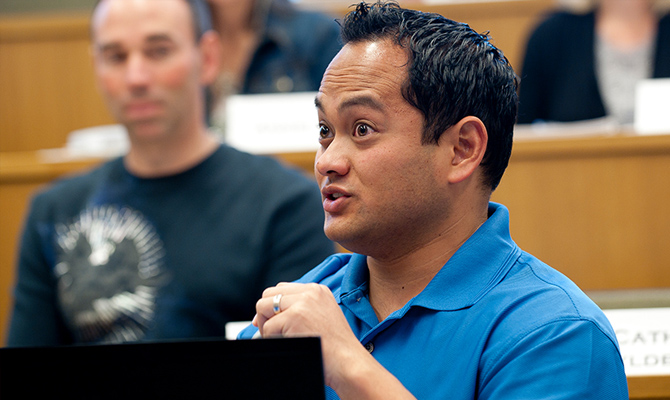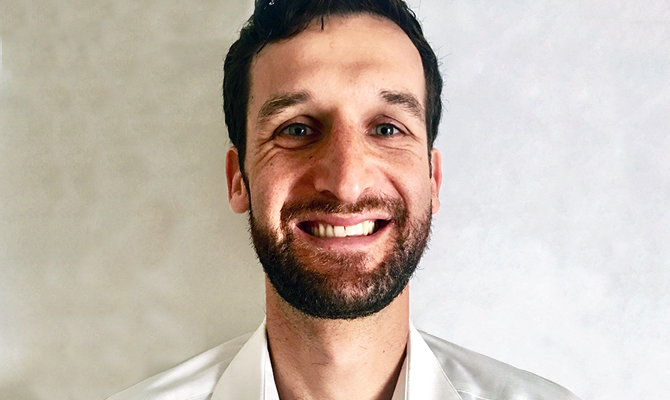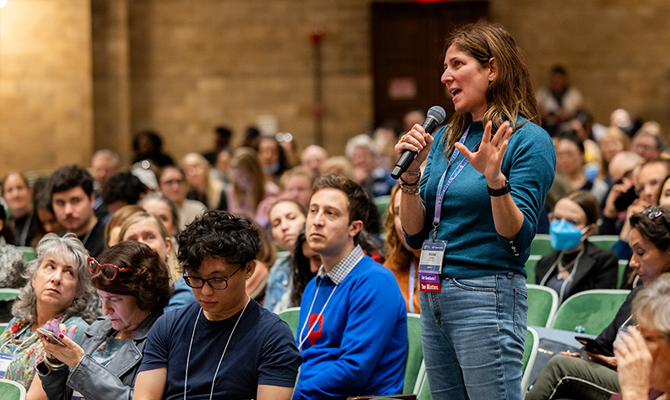
The Master of Applied Positive Psychology (MAPP) curriculum is designed to educate you in the history, theory, and research methods of positive psychology, as well as its application in professional settings.
The program consists of nine courses, completed during one year of full-time study during consecutive fall, spring, and summer semesters.
-
During the fall semester, you will begin the program with courses that focus on the science, research, and theoretical underpinnings of positive psychology, giving you a strong foundation to build on throughout the remainder of the program.
-
During the spring semester, courses offer content to help you learn how to apply positive psychology in various professional settings, including creating a plan for positive interventions in a real organization.
-
During the summer semester, you will complete your capstone project, which allows you to integrate what you’ve learned throughout the program, and apply it in the professional or research domain most significant to you. It often serves as a stepping stone to the application of positive psychology in a particular professional domain or to further research in a specific area.
The curriculum includes the following nine classes:
| Fall Courses | Description |
|---|---|
|
MAPP 6000 The Foundation and Future of Positive Psychology |
An introduction to the research foundations, intellectual history, and cutting-edge developments in the field of positive psychology. |
|
MAPP 6010 Research Methods and Evaluation |
A methodology course exploring the valid and reliable assessment of positive states, such as positive emotions, and positive traits, such as character strengths. |
|
MAPP 6020 Foundations of Positive Interventions |
An investigation into the theoretical, empirical and experiential nature of positive interventions. |
|
MAPP 6030 Perspectives on Well-Being |
An exploration of facets of the human experience that contribute to well-being among individuals, groups, and communities. |
| Spring Courses | Description |
|
MAPP 7080 Positive Psychology and Individuals |
An exploration of positive psychology applications in coaching, clinical, and other relational settings. |
|
MAPP 7100 Humanities and Human Flourishing |
An exploration and integration of culture and science to support the deeper understanding and more effective cultivation of human flourishing. |
|
MAPP 7120 The Psychology and the Neuroscience of Character |
An investigation of positive approaches to building cognitive, emotional, and character strengths across the lifespan. |
|
MAPP 7140 Applying Positive Interventions in Institutions |
An exploration of positive organizational scholarship interventions, including an application lab that enables students to design research-informed interventions as service-learning projects for non-profit organizations. |
| Summer Course | Description |
|
MAPP 8000 Capstone |
The capstone project is a distinguishing feature of the Master of Applied Positive Psychology program, blending academic and professional experiences and serving as the culmination of your work in the program. Through the capstone project, you will explore, in-depth, the theories and practical applications you’ve learned in the program, to advance the field of positive psychology itself. The capstone is completed during the summer semester and has no on-site course requirements. You will conduct this project work independently, with your advisor’s ongoing guidance, on a topic that is significant to you and most relevant to your future professional goals. |






